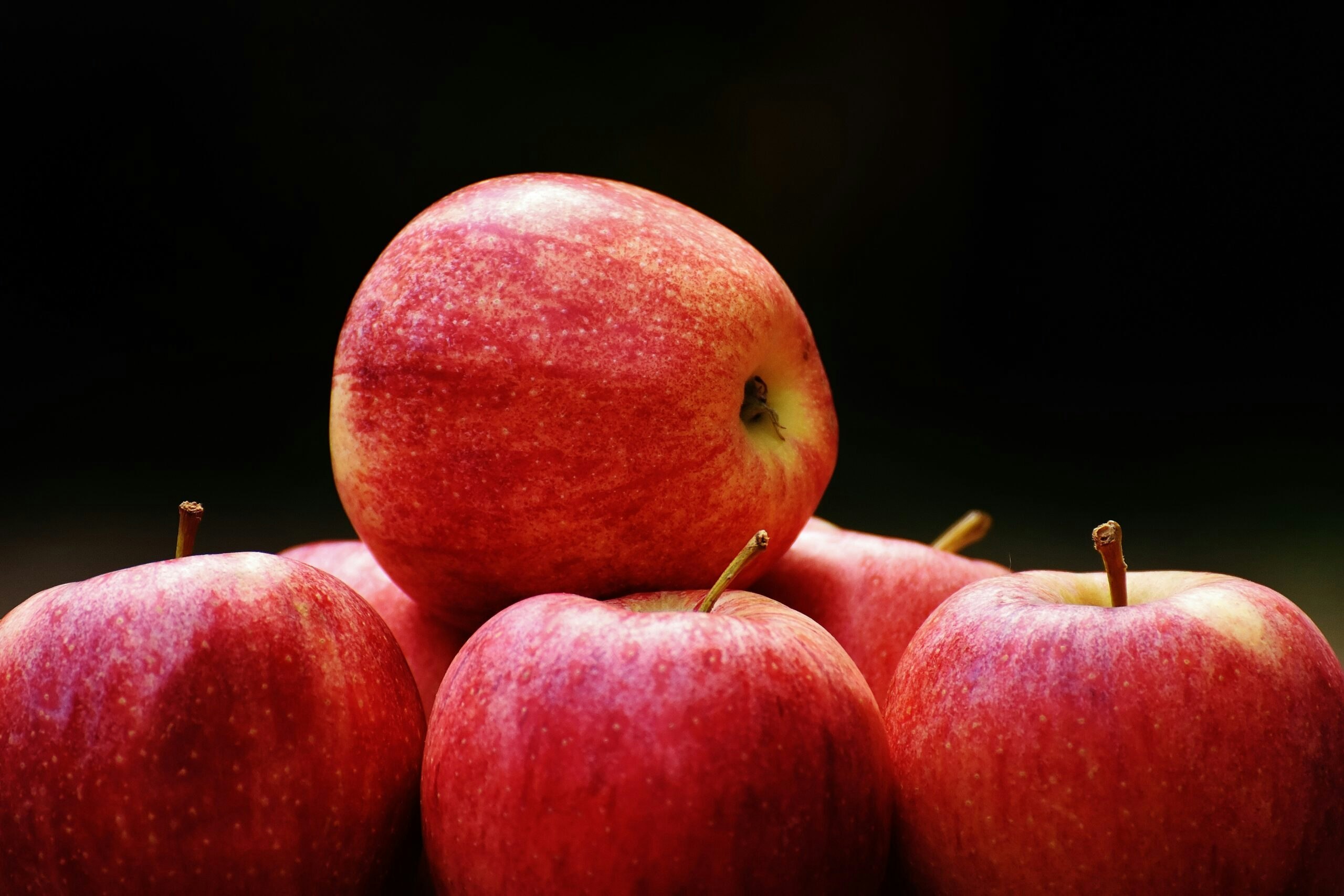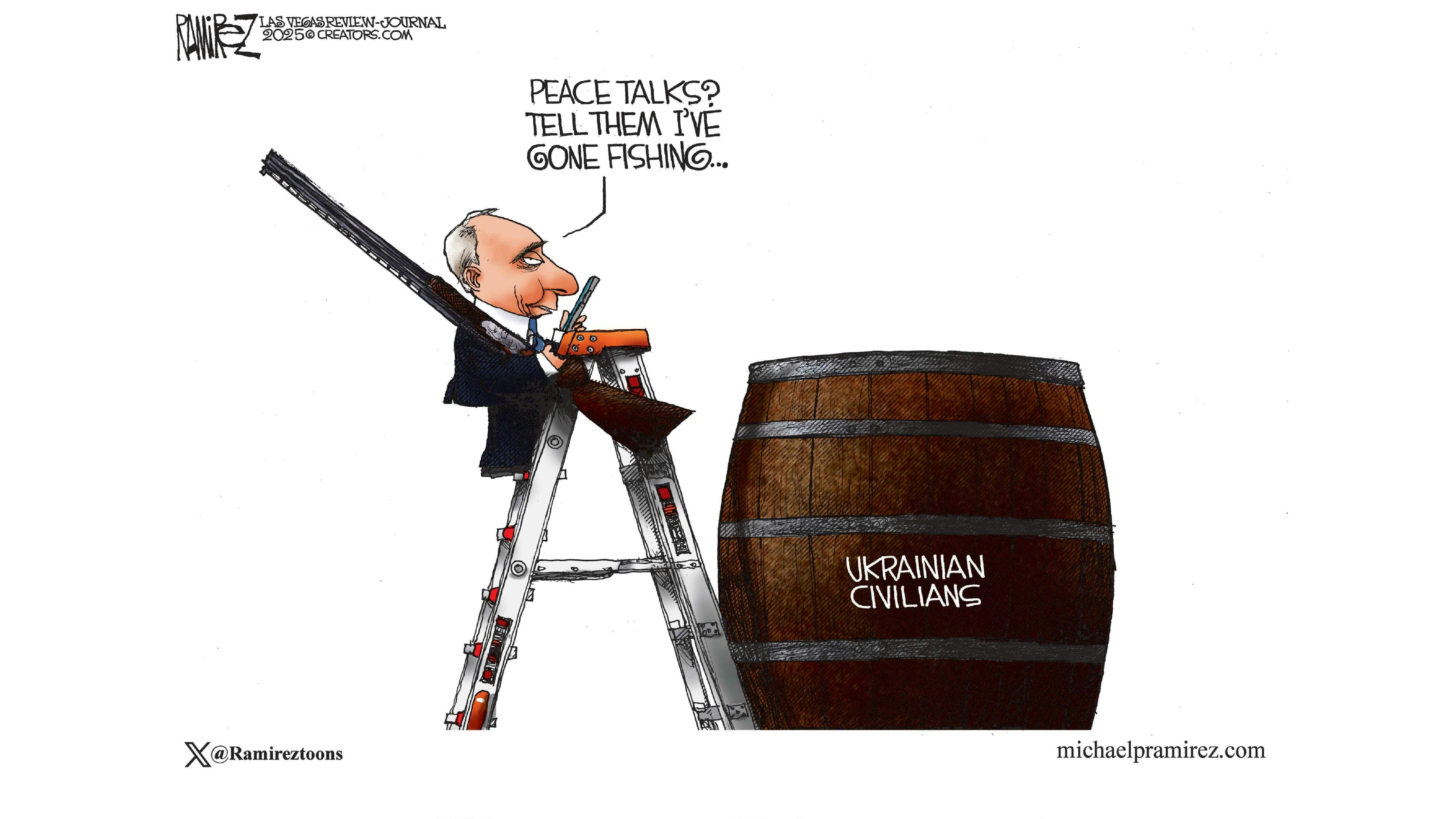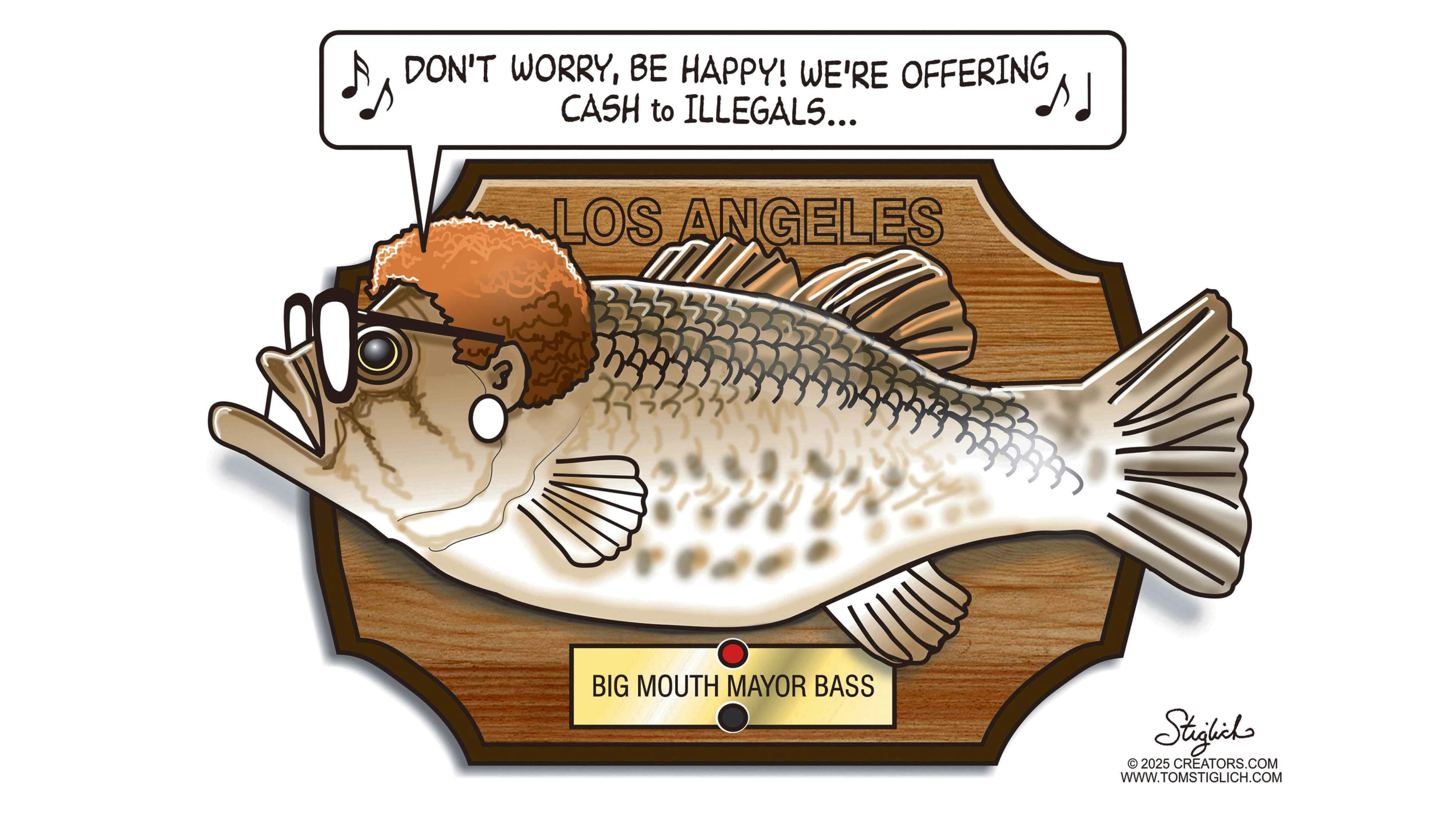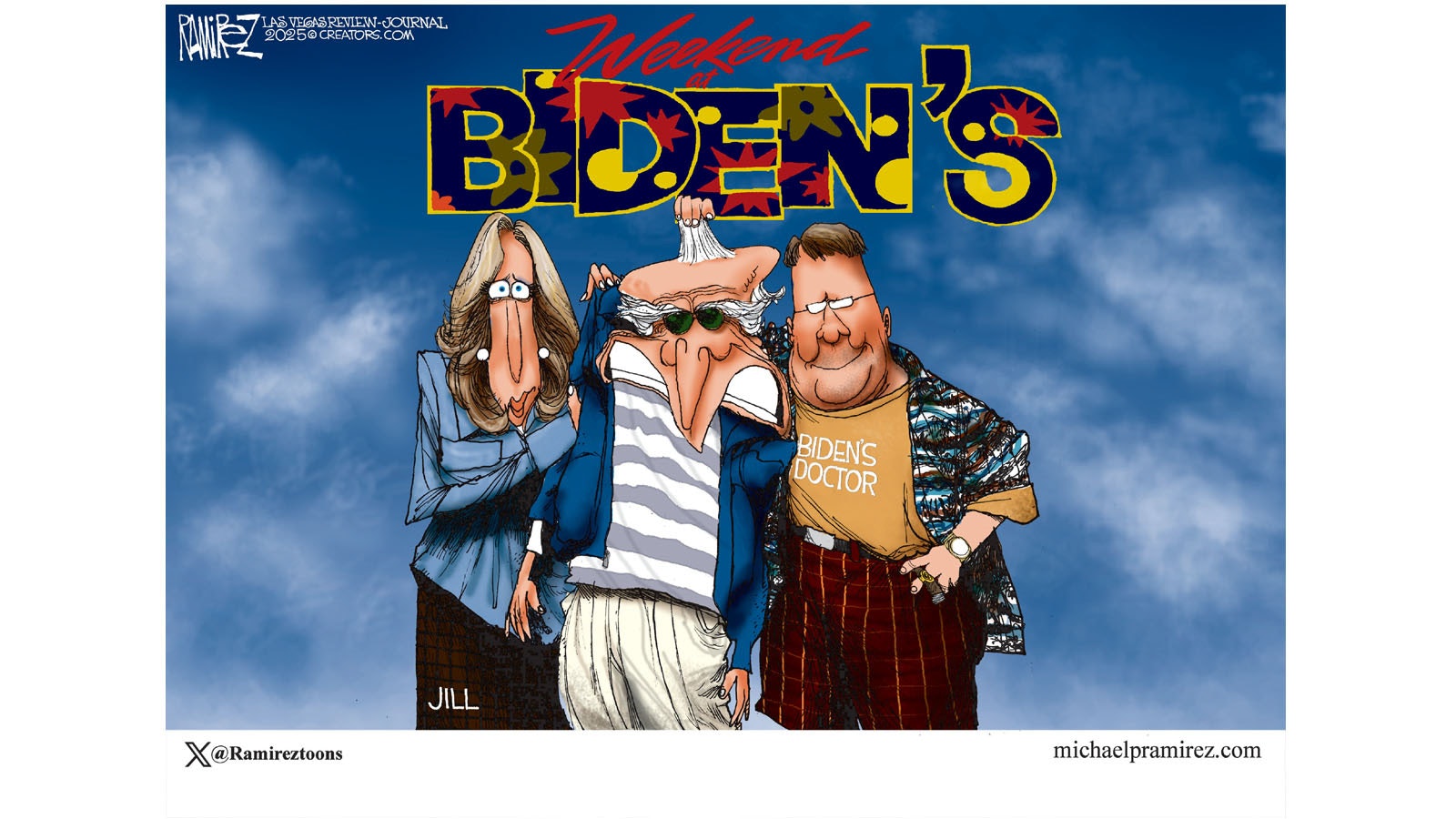Sponsored By Mick Pryor, Edward Jones Financial Advisor
By Randall Wise, Curator of Fremont County Pioneer Museum
“It has recently been demonstrated that the Garden of Eden was not in Palestine, but is still situated on the Shoshone Indian reservation in Wyoming and that the variety of apple with which Mother Eve was tempted is still grown on a ranch just outside the reserve.” — Gov. Fenimore Chatterton, speaking at the Lewis and Clark Exposition, St. Louis, Missouri, July 11, 1904.
Agriculture in the Lander Valley literally grew out of the necessity for food. In the late 1800’s Lander was an isolated community. With some 150 miles of travel to the nearest railroad, this meant all goods bound for the town in Fremont County had to be hauled in by freight wagons. The pioneers of the day had to be self-reliant and having their own livestock, gardens and orchards was a big step toward achieving their independence. People planted vegetable gardens and fruit bushes along with the ever popular apple tree. Initially much of the produce went to the mining camps located in the gold district in the mountains above Lander.
The climate in the Lander Valley is, for the most part, favorable for the production of crops. The town and surrounding area is nestled up against the Wind River Mountains, protected from harsh Wyoming winds. In good years the growers avoided weather related problems such as a harsh winter or early spring and fall freezes. Another advantage in the Lander area is the availability of water. The Lander Valley gained a reputation for its abundance of garden and fruit produce. A fresh juicy apple was popular with residents. The fruit could be used to make apple cider, jellies, applesauce, pies or eaten raw. Local residents sold their produce and proudly competed in the county and State fairs.
The stand-out producer of apples was Lander rancher Ed Young.

It all started in 1882, Young planted his first apple trees, the first planted in Wyoming, on his homestead on the Little Popo Agie. Despite setbacks caused by climate and weather, Young kept experimenting with varieties and grafting techniques and was as dedicated as one could be when it came to developing his apple orchard, cultivating new and hardy varieties of apple trees. By 1889 his trees were bearing fruit and by 1894 he was in full production with about 100 fruit bearing trees.
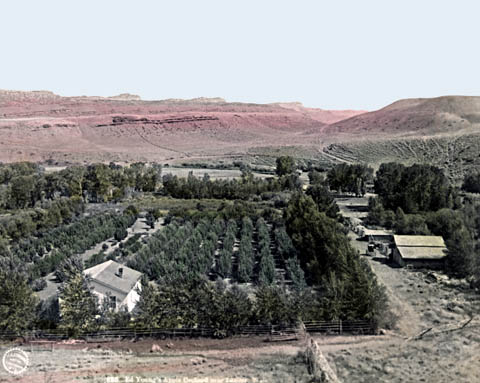
It was Young’s good fortune that he homesteaded in a beautiful area in Red Canyon that had fertile soil plus favorable climate. His apple orchard became known throughout Wyoming. People would visit his orchard and he would serve them a glass of his tasty apple cider. Lander citizens and merchants looked forward to seeing Ed Young coming across the bridge with his wagon full of apples.
By the turn of the century, Young’s apples were known throughout the region for their quality and his displays were the highlight of county and state fairs.
By 1904, Young’s orchard of more than 2,000 trees was said to produce 60,000 pounds that season. That same year, the newspapers and promoters began calling Lander “Apple City” and Ed Young the “Apple King of Wyoming.” The town used Young’s success to help promote settlement in the area and even made an unsuccessful bid for moving the state capitol from the “temporary” Cheyenne to the more hospitable climate in Lander.
As a matter of fact, Wyoming Governor Fenimore Chatterton, an enthusiastic promoter of Fremont County, mentioned the apples in his address on Wyoming Day at the Louisiana Purchase Exposition in St. Louis in 1904. Chatterton was an American businessman, politician, and lawyer. He was the sixth Governor of Wyoming from April 28, 1903 until January 2, 1905. Young’s apples lived up to Governor Chatteron’s hype, and though they did not win awards, were highly praised as making great progress in the region.
Young gained the reputation as one of Wyoming’s leading horticulturists. His prolific production of apples led to Lander being called the Apple City. While he was a leader in the apple growing industry he also encouraged others in the community to plant apple trees, which many did. Orchards were planted throughout the :ander Valley.
Despite the success of his orchard, which included cherry, plum, peach and other trees, the Great Depression was hard on Mr. Young who was no longer a young man. Only a few weeks before his death in 1930, at the age of 86, Young lost his farm to taxes. Still, he is remembered fondly for his passion for horticulture and left a lasting legacy in Wyoming’s fruit industry. His successes in Fremont County inspired many other farmers and ranchers to attempt orchards in Wyoming’s difficult climate. Growers bred the trees to grow well in the area, and more than 100 years later, some of Young’s apple trees are still producing.
Families and foodies alike are invited to celebrate Lander’s apple history this month.
The Lander Pioneer Museum is hosting the 2nd Annual Apple City Festival, set for September 18th from 1:00 to 3:00 p.m.
The event will feature apple cider pressing, crafts for kids, a petting zoo, an apple pie contest, a kid’s applesauce eating competition, hard cider from Jackson and more.

In honor of Lander’s apple history, the Pioneer Museum held Apple Fest in 2019, providing a fun family event highlighting the many aspects of apples and apple use in the Lander Valley. The ‘second annual’ was to have taken place in 2020, but like many events was cancelled due to the pandemic.
“Apple Fest in 2019 was a huge success. Kids loved pressing, and drinking, fresh cider,” said Museum Curator Randy Wise. “We’re having that, plus much more this year so people can have fun and learn about this important part of Lander’s history.” Wise said that attempts are being made to bring back some of the historic orchards in the area.
The 2nd Annual Apple City Festival will include an apple pie contest with cash prizes for the top three pies. There is also a kid’s pie competition with those winners also awarded prizes and ribbons.
“The Fremont County Pioneer Association, which supports the museum, has donated some nice prize money,” Wise said. People are encouraged to get out their yummy family recipes.
The rules are available in person at the Fremont County Pioneer Museum, located at 1443 Main Street in Lander, or online at the museum Facebook page.
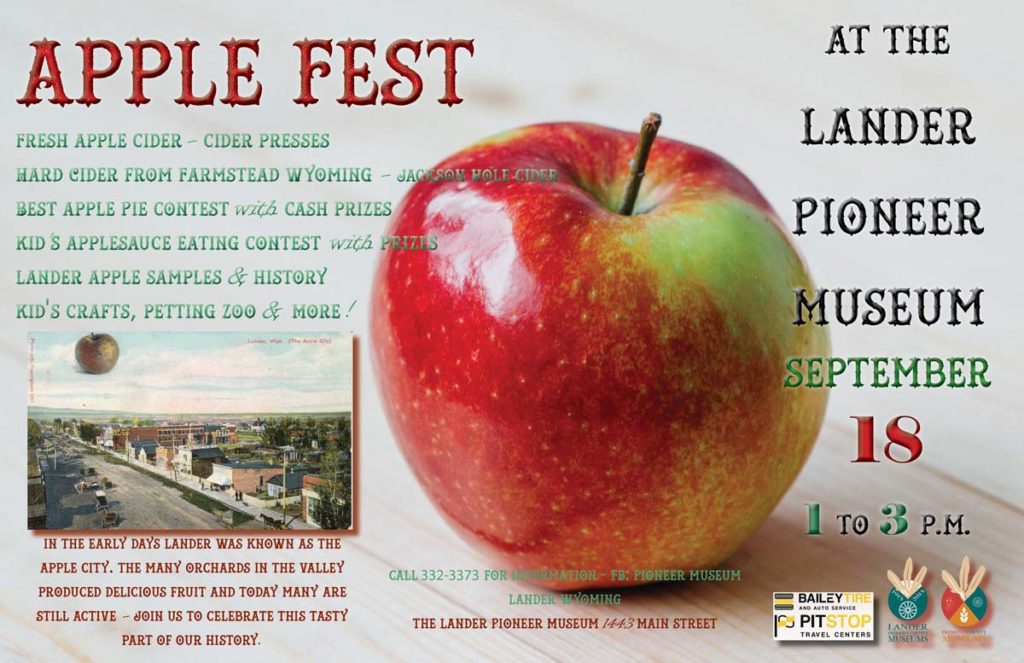
The judging will be at 11:00 a.m. with three lucky judges getting to pick the winners. At 1:00 p.m. the pies will be cut up and slices sold to the audience with the money going to the museum.
Another fun event is an applesauce eating contest for kids. There will be three age groups and the kid who can eat their bowl of applesauce the fastest will win a prize in each age group. The catch is they have to eat the apple sauce with a straw and can’t use their hands. There will also be kids crafts and local apple demonstrations and talks.

A highlight two years ago was the presence of Farmstead Wyoming and their samples of hard cider. Many of the apples the company from Jackson uses to make its cider come from the Lander area, and Farmstead will be back this year offering samples of its tart, tasty Wyoming made drink. People are encouraged to bring in their apples and crabapples by the bag, basket or truck load for the company if they want to see the apples put to good use.
For information call the museum at (307) 332-3373.
This page from Wyoming’s rich history has been presented by Mick Pryor, Edward Jones Financial Advisor. While we can’t change the past, a financial strategy for the future can be planned. If you have questions, concerns or are simply looking for a friendly advisor to discover your goals, discuss strategy and look to your financial future, contact Mick Pryor today.
Sponsored By Mick Pryor, Edward Jones Financial Advisor

